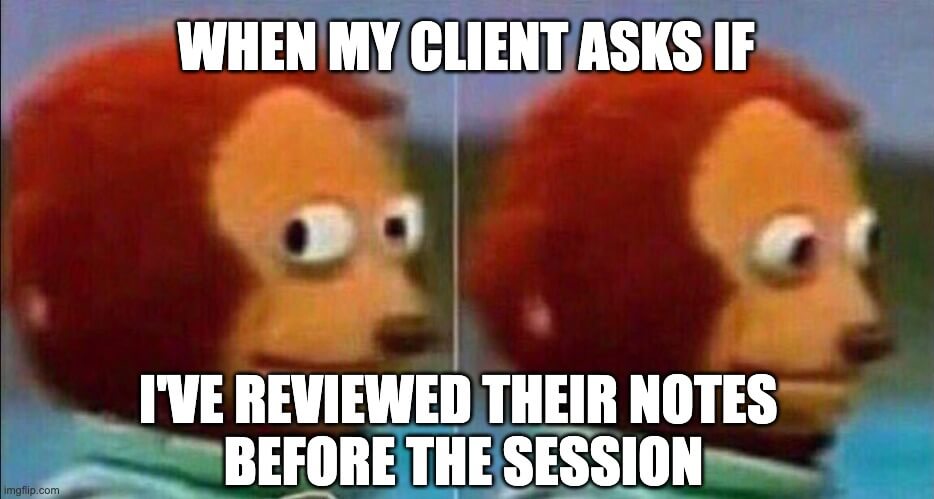THIS = Energy Management.
How so?
Because everyone on Earth has the same 24 hours. Why is it that some folks can do a lot more within the same time frame?
Answer: By managing their (finite) energy.
I’ll talk more about energy management in just a bit. For now let’s get on the same page. It’s not easy to effectively manage your time when you’re a coach.
Whether you’re a new coach or a seasoned pro, time management isn’t just about being productive – it’s the foundation of a sustainable and thriving coaching business. Insights from Harvard Business Review have been used in the strategies below.
That’s because unlike 9-to-5 jobs, coaching requires flexibility, emotional energy and balance between client sessions and business operations.
Many coaches are great at helping their clients win but not so good at building a profitable business.
Do You Need Time Management Coaching?
To answer that question, we need to be clear about one thing first — that mental fatigue from back to back coaching sessions is real…

(Special thanks to Imgflip for the images)
It’s one of the biggest challenges coaches face. Unlike regular meetings, coaching sessions require intense focus, emotional intelligence and active listening. Coaches often feel guilty when they struggle to balance their work and personal lives, leaving them overwhelmed and frustrated.
When you schedule multiple sessions back to back, you risk draining your mental energy which can impact the quality of your coaching. ICF Global Coaching Study (2020) says professional coaches spend 12-13 hours a week in sessions.
Administrative tasks can be a silent time drain for coaches.

From session notes to email correspondence these behind the scenes activities can easily eat up 40-50% of your working hours if not managed properly. The key is not to get rid of these tasks but to streamline them through systems and automation.
The internet has allowed coaches to take on clients from all over the world. This is both a blessing and a curse.
Blessing because you reach a much bigger pool of audience, potentially getting you more clients.
Curse because someone’s day time can be your night time, and vice-versa. If you were to accept clients from the other side of the world, you could be sacrificing your night time. This disrupts your sleep time and affects your performance the next day.
Last minute cancellations can also blow your schedule and income to bits.

Coaches lose revenue to cancellations and no-shows. Having a solid cancellation policy isn’t just about protecting your time – it’s about creating accountability and commitment in the coaching relationship.
This is why if you’re unable to effectively use your time and energy, it’s better to seek help– i.e. get time management coaching from a productivity coach.
Conquering Your Schedule
Calendar Blocking: More Than Just Time Slots
Calendar blocking is more than just coloring your calendar. It’s a strategic approach to energy management. When blocking your calendar consider your natural energy cycles. Many people have peak mental clarity in the morning so this is the best time for coaching sessions that require deep insight and complex problem solving.
That’s why time management and productivity is such an important topic. You got to get your priorities right and then set up your calendar accordingly. Nobody can tell you 100% what you should be doing in the morning or afternoon or evening — only you yourself know the answer.
For coaching sessions allocate 75 minute blocks for 60 minute sessions. This extra 15 minutes is a buffer for session wrap up, quick notes and mental reset — which will reduce overwhelm. Without this buffer you’ll run sessions over time or start the next session feeling rushed and unprepared.
Administrative work benefits from batch processing. Instead of spreading administrative tasks throughout the day, dedicate specific blocks (ideally 90-120 minutes) to do all similar tasks at once. This reduces the mental energy lost in context switching and increases overall productivity.
Digital Tools and Automation
Modern coaching requires a solid digital foundation.
For example, personal accountability is important when using digital tools and automation to increase productivity and maintain focus.
Let’s see how to get the most out of each tool:
Dubsado can turn your client onboarding into a breeze. Set up automation sequences to:
Send welcome emails with intake forms immediately after booking
Deliver contracts for electronic signature
Send follow up emails if documents aren’t completed
Generate invoices based on package selection
This automation alone can save 3-4 hours per new client.
Practice Better makes ongoing client management a breeze:
Integrated calendar management that syncs with multiple platforms
Secure messaging that keeps all client communication in one place
Document sharing with version control
Program templates that can be customized for each client
The platform’s analytics will also help you track client progress and engagement and inform your coaching strategies and business decisions.
Zoom Pro is a must have for virtual coaching. Beyond basic video calls use:
The recording function to review sessions for improvement
Breakout rooms for group coaching activities
Creating recurring meeting links for regular clients with custom waiting room messages
Using the whiteboard for visual coaching exercises
Define Your Prime Time: Energy Management
Your prime time is your most valuable resource.

Research in chronobiology shows most people have a 2-4 hour window of peak cognitive function. To find yours track your energy levels hourly for a week. Notice when you feel most alert, creative and focused. These are your prime coaching hours.
The time investment into discovering your “optimum time” is well worth it, especially for your productivity now and in the long-term.
For morning focused coaches here’s how to structure your day:
[6:00-7:00] Personal Development
Start with activities that energize you. This could be meditation, exercise or reading. The key is consistency. Research shows coaches who have morning routines report 23% higher job satisfaction and better client outcomes.
[7:00-8:00] Session Preparation
Use this hour to:
Review client notes from previous sessions
Prepare coaching frameworks for upcoming sessions
Check technology and materials
Get mentally centered
[8:00-12:00] Prime Coaching Sessions
During these prime hours:
Schedule your toughest clients
Limit sessions to 3-4 with 15 minute breaks
Use the breaks for quick notes and hydration
Keep the coaching environment focused
[12:00-13:00] Lunch Break
Never skip this break. Use it to:
Get out of your workspace
Eat a healthy meal
Take a short walk
Reset for the afternoon
Boundary Setting for Work-Life Balance
Boundary setting isn’t just about saying no – it’s about creating systems. Here’s how to set professional boundaries that stick:
Set specific times for client communication.
For example:
Email responses: 10:00-11:00 AM and 16:00-17:00
Voice messages: Respond within 24 business hours
Emergency protocols: What is an emergency and how will you handle it
Communicate these boundaries during client onboarding and live them. Research shows clients respect boundaries more when they’re clearly communicated and consistently applied.
Optimizing The Client Experience
Client Onboarding: A Smooth Process
A smooth onboarding process saves time and sets clear expectations. Here’s a breakdown:
Create a Digital Welcome Package with:
Coaching philosophy and methodology
Communication guidelines and boundaries
Session prep instructions
Technology requirements and setup guides
Payment and cancellation policies
This should be sent automatically through your practice management system upon booking.
Have a structured Intake Process that:
Collects essential information before the first session
Gets client goals and expectations
Assesses client readiness for coaching
Baseline measurements for progress tracking
Documentation Systems: Note Taking
The SOAP note format adapted for coaching makes session documentation easy:
Subjective
Client’s current challenges and wins
Emotional state and energy levels
Progress on previous action items
Objective
Behaviors and patterns
Actions taken since last session
Progress towards goals
Assessment
Your professional insight
Patterns identified
Areas to grow and celebrate
Plan
Action items for the client
Focus areas for next session
Resources to share
Session Efficiency
Pre-Session Preparation: The 20-Minute Formula
Pre-session preparation starts you off on the right foot yet many coaches don’t do it.

First 10 minutes:
Review previous session notes for key action items
Check client’s progress
Review any email exchanges or messages since last session
Identify topics to discuss or explore
Next 5 minutes:
Prepare your coaching framework for the session
Set up any tools or resources
Review client’s long-term goals to ensure alignment
Prepare any specific exercises or activities
Final 5 minutes:
Make sure all the tech stuff is working
Ensure your space is distraction free
Review your session structure one final time
Session Management
To stay in flow while on track requires:
Time awareness without clock-watching:
Silent vibrating timers at 15 minute intervals
Gentle chimes at halfway and 10 minutes to go
Position your clock where it’s visible but not distracting
Become a master of productive conversations by:
Using the GROW model (Goals, Reality, Options, Way Forward)
Strategic silence for deeper reflection
Powerful questions to stay on track
Transition phrases to get back on track
Growing Your Coaching Business
Group Coaching Program: Impact Without Sacrificing Time
The 3-tier model allows for scalability while maintaining quality:
Foundation Level ($197-297/month)
This entry level program includes:
60-minute monthly group sessions
Structured curriculum with action items
Access to replays / recordings
Templates, frameworks, systems
Group support via a community / forum
Mid-Tier ($397-597/month)
All the above, plus:
2 extra monthly group sessions
Group weekly accountability check-ins
Premium ($997-1497/month) VIP experience
All the above, plus:
2x monthly private coaching sessions (@ 60 mins)
Private Slack channel for direct access (Mon – Fri)
1:1 Quarterly strategy sessions
Passive Income Streams

These are online courses / digital products you create once but sell many times over. They’re usually online courses, templates, frameworks, systems, protocols, etc.
Since it almost doesn’t cost you anything extra apart from hosting cost which is super affordable, your profit margin is close to 100% regardless if you sell 1 copy or 1,000 copies.
And the best part?
You can automatically fulfill customers’ purchases via a cart / checkout tool since the customers will download the digital products or access the online course on their own.
No extra effort on your part once you’ve set up the system in your cart / checkout tool.
Seamless Workflow
Your tech stack should work together to create a seamless workflow. They should have these features:
Client profiles and history
Session scheduling and reminders
Payment processing
Document storage
Progress tracking
Communication logs
For content delivery:
Use Kajabi for course hosting
Integrate Google Drive for resource sharing
Use Loom for quick video messages
Create branded materials with Canva
For taking payments / orders:
Set up automatic recurring billing
Configure failed payment recovery
Generate automated invoices
Track payment analytics
Measuring Success with KPIs
Make sure to track these metrics:
Client Engagement
Session attendance rate (90%+)
Homework completion
Between session communication frequency
Program renewal
Business
Revenue per coaching hour
Client acquisition cost
Program completion rate
Referrals from existing clients
Personal
Energy after sessions
Work satisfaction
Work-life balance
Professional development hours
Remember, time management in coaching is a practice that evolves.

Start with what will have the biggest impact on your situation and add more as you grow. The goal is to have a sustainable, profitable practice that serves you and your clients well.
By putting these systems and strategies in place you’ll not only manage your time better but have a more professional and impactful coaching practice. Your investment in these systems will pay off in client satisfaction, business growth and personal well-being.
FAQs
What are the 3 rules of time management?
The 3 main rules of time management follow the “Eliminate, Delegate, Automate” framework:
1. Eliminate
Get rid of tasks that don’t add value
Say no to non-essential commitments
Get rid of time wasters
Stop doing things that don’t align with your goals
2. Delegate
Hand off tasks others can do better
Share with team members
Outsource admin work
Use virtual assistants for routine tasks
3. Automate
Use technology to do repetitive tasks
Set up systems that work for themselves
Use scheduling software
Create automated email responses and follow-ups
Who is a time management expert?
These are folks who’re recognized for their expertise in time management:
Stephen Covey (accomplished author of “The 7 Habits of Highly Effective People”) – famous for his “big rocks” concept and time management matrix
David Allen (created the “Getting Things Done” method) – famous for inbox-zero
Francesco Cirillo (invented the Pomodoro Technique) – created the 25-minute work sprint
Why is timekeeping important for coaches?
Timekeeping is important for coaches because:
It shows respect for clients’ time and money
Maintains professional boundaries
Ensures all clients get their full session time
Prevents schedule overruns that impact other clients
Clarifies billing and pricing
Prevents coaches from burning out by having structured days
What does a time management coach do?
A time management coach helps clients:
Find where their time is being wasted
Create customized systems for tasks
Develop better habits and routines
Set realistic goals and deadlines
Break down big projects into smaller ones
Overcome procrastination
Use productivity tools
Balance work and personal life
How can a coach manage their time?
Coaches can manage their time by:
Using scheduling software to book
Defining work hours
Building in breaks between sessions
Batching admin work
Creating templates for processes
Limiting daily client sessions to prevent burnout
Using efficient note taking systems
Delegating non-coaching tasks when possible
Regularly reviewing their schedule
Setting aside time for business development
Remember, good time management isn’t about working more hours – it’s about making the most of the hours you work. For coaches, this means finding the right balance between serving clients well and keeping themselves energized and effective.
Related
- Free Personal Branding Worksheet (for creators)
- 5 Profit-Killing Myths: SEO vs Digital Marketing
- 5-step Conscious Copywriting method (2025)
- ($0 startup costs) How to become a sobriety coach
- (Stop the 30-day profit lies) 10 Advantages of Online Businesses
- Steal My Intuitive Coaching Playbook (free)
- Brand Copywriting Guidelines That Stop Confusion (for creators)
- 8 Alternatives to Marketing Without Social Media
- Newsletters Kill Your Sales: Email Marketing for Consultants
- How to Improve Copywriting Skills (in 15 minutes daily)
